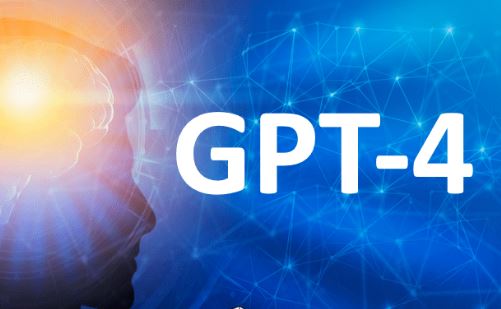AI GPT-4 would be available from next year offering improvements over GPT-3 and putting Google in jeopardy.
There is a lot of talk about artificial intelligence in this final stretch of 2022. What was seen as something very distant and almost science fiction has ended up devouring our present day, revealing itself by leaps and bounds with enormous control power and information. At Vandal Random we already talked to you at great length about GPT-3, which has gradually developed new capabilities, functions and tools until it became an AI capable of creating nightmares for Google. GPT-3, in case you don’t know, is a fairly advanced model of artificial intelligence that generates written language in a natural and dynamic way and that can be used for free. GPT-4 could debut next year by correcting and augmenting its predecessor’s formula, similarly based on ChatGPT.
GPT-4 will be a great technological leap and could put Google itself in check
To be direct, GPT-4 would be a much more intelligent AI improving all the functions, applications and the language model of OpenAI (we refer to the company specialized in the development of systems based on that artificial intelligence). The learning parameters of GPT-4 would be 500 times larger than GPT-3. To give you an idea, that would mean that GPT-4 could produce much more complex texts, with a much higher quality and with a language that would be difficult to identify as an AI. Of course, the main competitor will continue to be Google, how could it be otherwise. Although the competing company in question is very concerned and code red due to the advances being made since ChatGPT.
In fact, Sundar Pichai, CEO of Google, has ordered a restructuring of the artificial intelligence development teams to be able to deal with the launch of GPT-4, an AI that does not yet have a set release date but should arrive from the next year. Perhaps in 2023 we will see an amazing revolution in this technological aspect that will change the way we navigate the Internet and understand this artificial intelligence.
OpenAI, the company specialized in the development of systems based on artificial intelligence, will soon launch the fourth version of one of the most advanced language models to date. GPT-4, specifically, could debut in early 2023 to renew GPT-3; the AI that continues to fascinate everyone with its advanced responses. It will also arrive with important news.
One of the improvements of GPT-4 over GPT-3, on which ChatGPT is also based, is its size. The version we could see in 2023 will have up to 500 times more machine learning parameter capacity than current AI, allowing it to cover a greater number of natural language processing tasks.
In this way, GPT-4 could be more intelligent and offer a greater number of applications compared to GPT-3. Or, perform in a more precise and exact way those tasks that the current OpenAI language model can already do. In fact, and although GPT-3 —or rather, ChatGPT, which is based on GPT3— gives answers that fascinate everyone who uses it, on many occasions it tends to offer erroneous or even less current results.
Therefore, it is expected that GPT-4 will generate more advanced texts, of higher quality and with better language. It will also be able to carry out automatic translations and give more coherent answers, as well as offer more current information, among other improvements.
GPT-4 could arrive in 2023 with a strong competitor

At the moment, the exact release date of GPT-4 is unknown, although it would not be surprising if OpenAI announces the aforementioned language model publicly during the first quarter of 2023. It is also likely that with GPT-4 a new version will arrive of ChatGPT, the company’s artificial intelligence based on GPT-3 and used specifically for having conversations with humans.
OpenAI, yes, will have a serious competitor next year: Google, who does not want the current AI of the company founded by Elon Musk to replace its search engine. In fact, Sundar Pichai (CEO of the company), has come to activate a “red code” due to the popularity of ChatGPT. All this, moreover, despite the fact that they were reluctant to publicly launch LaMDA, their language model for dialog applications, for fear of a bad reputation.
Now, Pichai has ordered a restructuring of the teams dedicated to the development of artificial intelligence models, to create tools capable of competing against ChatGPT and the rest of the OpenAI models, and which could also debut over the next year.

